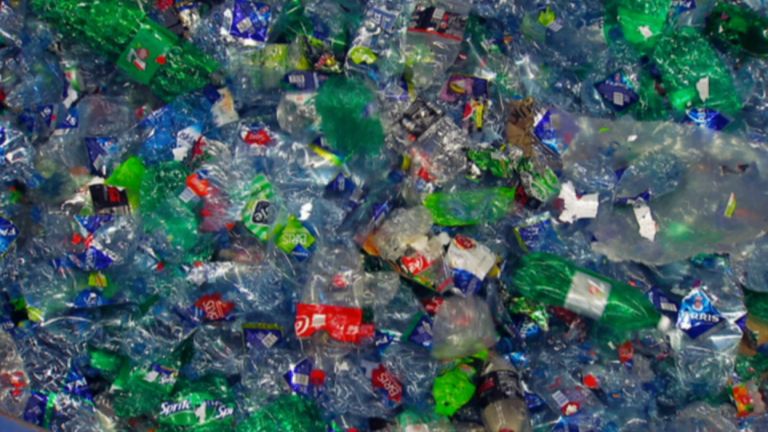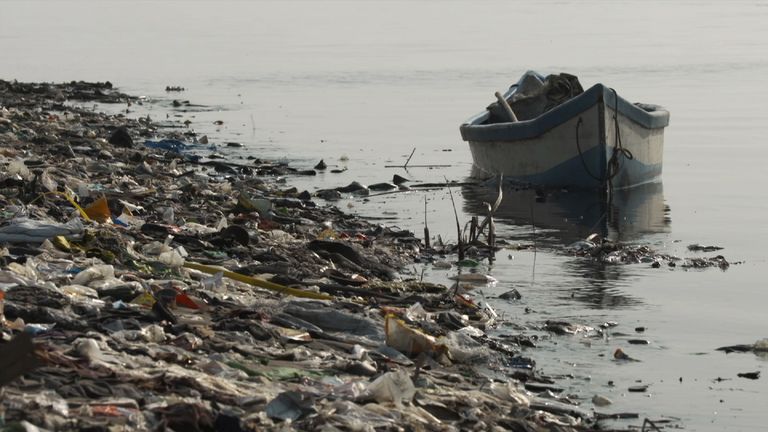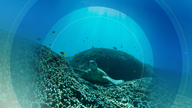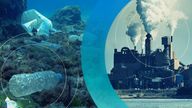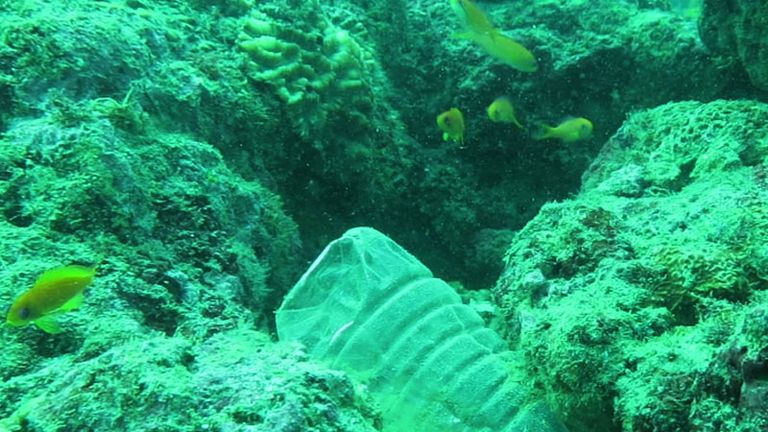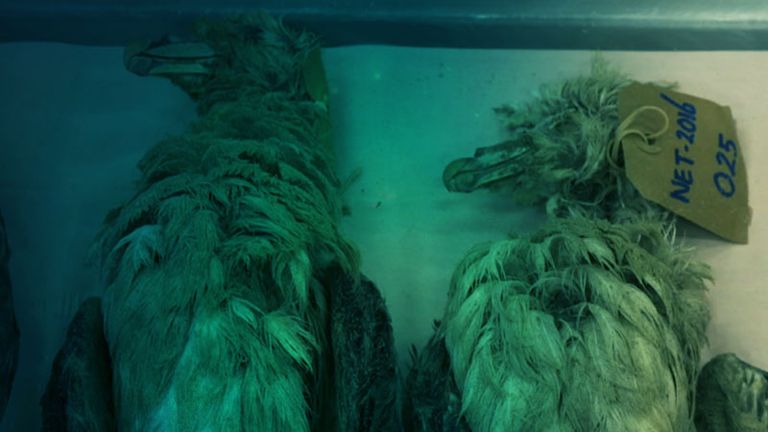Sky Ocean Rescue: How bottle deposit scheme boosts recycling
Campaigners believe a Norway-style plastic bottle deposit scheme could revolutionise Britain's approach to recycling.
Tuesday 31 January 2017 14:50, UK
Britain could almost double the number of plastic bottles that are recycled by adding a small deposit charge to every sale, according to new evidence.
The latest figures available from Norway, which has the world's most effective Deposit Return Scheme (DRS) on plastic drinks bottles, show 96% are returned by consumers for recycling.
There, a standard 500ml drinks bottle has a deposit of 1 Norwegian Kroner (about 10p), with larger bottles carrying a 2.5 Kroner (25p) deposit.
Consumers have the deposit refunded when they return their empties.
Unclaimed deposits on the bottles that aren't returned help fund the system, with the balance made up by drinks manufacturers.
In the UK fewer than half of bottles are effectively recycled.
:: Sky Ocean Rescue: How can we solve the problem?
:: Sky Views: Why we're launching Sky Ocean Rescue
PET, the form of plastic used in water and soft-drinks bottles, has a relatively high value.
By keeping the empties separate from other kerbside recycling the plastic remains uncontaminated and attracts a premium price from companies making new bottles.
Kjell Olav Maldum, who runs the Norway's bottle recycling scheme Infinitum, said 8% of annual oil production is used to make plastic and the material should be seen as a valuable resource.
"Plastic, when you make it from oil, uses a lot of energy," he said.
"If you collect it from recycled material through a deposit system you take care of the material.
"You keep it clean and you can use it again and again."
Norway, like the UK, had a deposit on glass bottles for several decades.
But while deposits disappeared in the UK when plastic replaced glass, in Norway they continued.
There, any shop selling bottles is obliged to collect empties, with owners given a small handling fee.
Larger stores and supermarkets often install "reverse vending machines" that scan barcodes and give consumers vouchers against their shopping or make a donation to charity in return for bottles.
Anne-Marit Lunestad, a teacher, said even a small deposit adds up to a significant sum over time.
She said: "It can be a lot - thousands of kroner every year if you have a family.
"It's the best thing to do anywhere in world. Get rid of the plastic. Look around - we don't get plastic (litter) any more."
In the UK 16 million of the 35.8 million plastic bottles consumed every day evade recycling schemes, according to Recycling Now.
Zero Waste Scotland, which is campaigning for a DRS, predicts it would boost recycling rates to more than 85%, saving local authorities £13m a year on kerbside collections.
It also values the social satisfaction from reduced litter at £205m a year.
Members of the Scottish Parliament have travelled to Norway to study how the DRS scheme works.
It has been so effective that most of the plastic now washing up on Norway's coast comes from abroad.
Simen Knudsen of Nordic Ocean Watch told Sky News that there are now six foreign bottles for every one Norwegian bottle, with many coming from the UK.
He said: "People (in Norway) understand they are borrowing the bottle but buying the contents.
"Get your own version of the deposit scheme in the UK. Then we can send you back the bottles and make some money out of it!"
But Petter Nome, chief executive of Norway Beer and Soft Drinks Producers, says the scheme works in the country because deposits "are in our genes".
"It has been built up gradually in this country," he said.
"If it's done overnight in Scotland it will be very expensive.
"You don't have the infrastructure. You have code (the reverse vending) machines to take tens of thousands of different cans and bottles.
"Someone has to do that work and someone has to pay for it."
:: You can find out more about Sky Ocean Rescue and get involved by visiting the campaign's website and you can also watch our documentary, A Plastic Tide.
